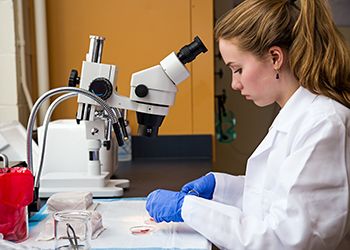Assistant Professor
Department of Biomedical Sciences
Dr. Hearing is an Assistant Professor in the Department of Biomedical Sciences at Marquette University. He completed his postdoctoral training in the laboratories of Dr. Mark Thomas and Dr. Kevin Wickman at the University of Minnesota. He obtained his Ph.D. at the Medical University of South Carolina in 2010 and his B.S. at Marquette University in 2003 working in the laboratories of Dr. Jacqueline McGinty and Dr. David Baker.
Dr. Hearing’s primary research investigates how modifications of cellular dynamics and synaptic strength can control behavior in normal and diseased states. A major emphasis of Dr. Hearing’s research is understanding how neural plasticity induced by chronic exposure to drugs of abuse leads to the development of addiction, with an additional focus on exploring methods to counteract these modifications at the cellular and circuit level to reverse pathologies which drive relapse.
Parallel to these interests is exploring how abnormalities in synaptic plasticity underlie psychological disorders with strong cognitive and affective components such as schizophrenia, anxiety, and depression.
Education
- B.S. 2003, Marquette University
- Ph.D. 2010, Medical University of South Carolina
- Postdoctoral fellow, University of Minnesota
Courses Taught
- BISC 4931: Topics in Biomedical Sciences: Biology of Aging
Research Interests
Research in the Hearing Lab
Perturbations in neural circuits mediating decision-making, inhibitory control, reward and habit occur in a number of disease states including substance abuse, schizophrenia, anxiety, and depression. These are among the most prevalent neuro-psychiatric disorders, and show a high rate of co-morbidity with each other. The goal of my research is to identify neurobiological modifications that predispose individuals to and/or promote the development of these disorders, and to develop interventions that restore healthy function using synaptic plasticity and neuromodulation. My primary research focuses on understanding how drug- and experience-dependent neural plasticity within the prefrontal cortex and striatum drives relapse and promotes the development of compulsive drug-seeking. Research in my lab combines behavioral, electrophysiological, pharmacological, and neuromodulatory (optogenetics) approaches to demonstrate how specific forms of synaptic plasticity can directly influence behavior.
Dr. Hearing's research page



